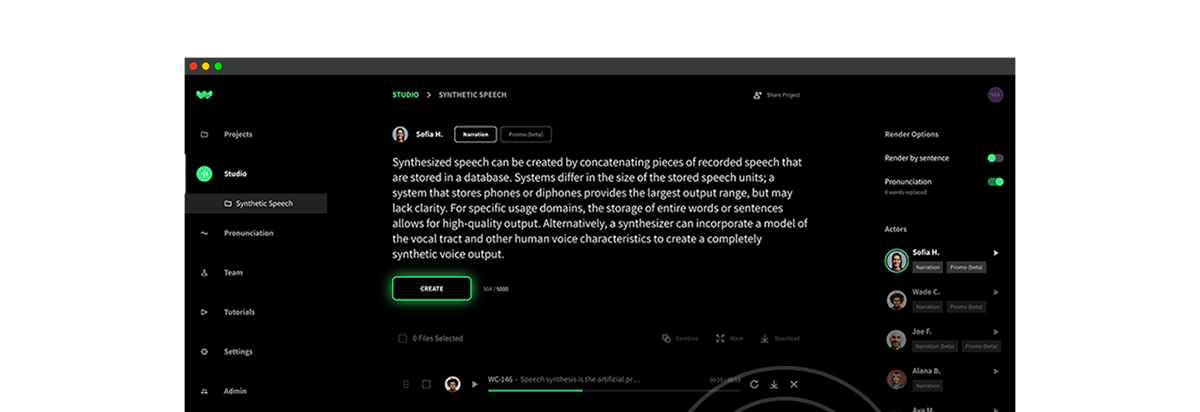When you have a solid voice recording, adding the right background music lets you set the emotional tone. Select the right sound track, and your production suddenly takes on a
What do you want?MORE TEXT! CLEANER WORKFLOW!When do you want it?NOW! We’re happy to oblige! These two new capabilities aid you on your quest to lifelike ai text to speech.
When you’ve got an eye-dazzling video and a perfectly wordsmithed script, you need only the best for your voice narration, too. We’ve compiled some of the voice industry’s best tips
If you’ve used one of the newer text to speech services, you’ve witnessed the huge improvements this industry has seen in the past decade. The voices we have today are
Today’s text-to-speech empowers content creators to bring their words to life. Where once authors hired voice actors or went without voice altogether, text to speech (TTS) allows them to narrate
Voice is a fundamental communication medium we have as humans, yet voice production simply does not scale. Talent can only speak 3-4 hours a day and editing voice is not
One of the biggest fears that eLearning content developers share is the disengaged learner. Modern instructional design models, authoring tools, and storytelling best practices aim to address this concern. At
Sometimes creativity flows easily. Words find their way on the page effortlessly, requiring minimal editing. Each word knows its place, and I’m simply a conduit through which they flow. And
Product tours on video offer a scalable and delighting experience to onboard new users, showcase a new product feature, and even convert free trial users into paying customers. Complex products
I’m the last to jump on any bandwagons. I resisted Harry Potter until well after all the movies came out. Only when a close friend finally wore me down, I
Text-to-speech is the instructional designer’s new ally. By increasing flexibility and accelerating time to market, TTS enables eLearning course creators to produce modules effectively. If you create training or eLearning

© WellSaid Labs, Inc. 2024
All rights reserved.
Made with
in Seattle, WA